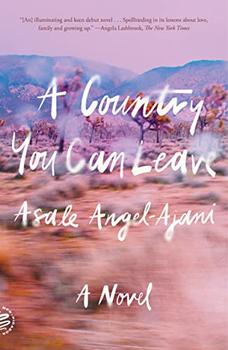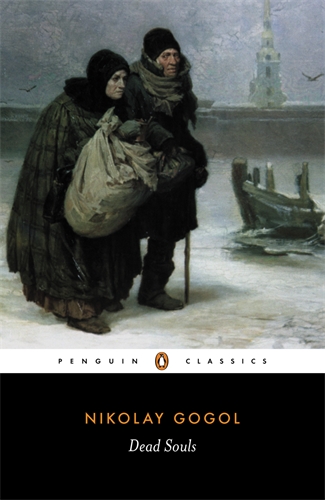Summary | Excerpt | Reviews | Beyond the Book | Read-Alikes | Genres & Themes | Author Bio

A Novel
by Asale Angel-AjaniThis article relates to A Country You Can Leave
 In A Country You Can Leave by Asale Angel-Ajani, teenage narrator Lara characterizes her mother Yevgenia's reading habits as something akin to a religious experience. She describes coming upon her at a time when she was utterly absorbed by Nikolai Gogol's Dead Souls: "...a book she had read before, only this time she was reading the Italian translation. Months later she read it again in Spanish. My mother reads for nostalgia. The same twenty or maybe twenty-five books year in and year out, in the original and in translation. Once I know this, I understand that what my mother seeks from books isn't what I seek. I want to be lifted up, carried away. She wants to be anchored. The exact opposite of what each of us wants from our real life."
In A Country You Can Leave by Asale Angel-Ajani, teenage narrator Lara characterizes her mother Yevgenia's reading habits as something akin to a religious experience. She describes coming upon her at a time when she was utterly absorbed by Nikolai Gogol's Dead Souls: "...a book she had read before, only this time she was reading the Italian translation. Months later she read it again in Spanish. My mother reads for nostalgia. The same twenty or maybe twenty-five books year in and year out, in the original and in translation. Once I know this, I understand that what my mother seeks from books isn't what I seek. I want to be lifted up, carried away. She wants to be anchored. The exact opposite of what each of us wants from our real life."
If this is the case, Yevgenia's choice of reading material reflects that fact as much as her reading patterns do. Dead Souls (Myortvye dushi in Russian), published in 1842 and considered a classic of Russian literature, is a unique picaresque work with a sense of intrigue and purpose but also a leisurely, circular quality to its storytelling that leads the reader to focus on the immediacy of the writing. Gogol, a heavily influential Ukrainian-born writer known for his colorful, satirical depictions of Russia, referred to Dead Souls as an "epic poem in prose."
The plot of Dead Souls concerns a man named Pavel Ivanovich Chichikov who travels the Russian countryside, visiting estates and trying to convince landowners to sell him their serfs who have died. This offer is theoretically to the landowners' advantage, as they are taxed on the number of serfs on the property, including those who have died since the government's last census. But Chichikov's motivations are mysterious to the other characters as well as the reader. This premise provides the novel with a suspenseful and absurdly humorous canvas on which Gogol draws a series of rich, amusing and sometimes grotesque depictions of feudal Russian society.
In the essay "Gogol's Dead Souls: Degrees of Reality," scholar Winston Weathers considers how Gogol's comic portraits are fused to a sense of tragedy, using as an example his description of a landowner named Plushkin: "Through no means and efforts could one ferret out what his dressing-gown had been concocted from … About his neck, too, he had tied a something that one could not make out; it might have been a stocking, or a bandage, or an abdominal supporter, but nothing that one could possibly consider a cravat." As Weathers points out, the narration's assessment of the same ridiculous character takes on a tragic note, such as when noting, "The fiery youth of the present would recoil in horror were you to show him a portrait of himself in his old age."
This is one feature Dead Souls shares with Angel-Ajani's novel. Both stories contain humor and tragedy rendered in elaborate, captivating prose, and display an understanding of how these two elements are not simply a dichotomous pair but different angles on the same realities. Another similarity between the works lies in the movement of their characters. While Chichikov is a social climber and Yevgenia, if anything, seems to wish to remain uncontrolled by material interests, they both come across as self-interested and also somewhat mysterious to the reader. Their intentions are hidden beneath a lively exterior and, as Lara suggests in her comment about the contrast between how she and her mother read and live, they are more than ready to continue on to the next place or person when the going gets tough.
Filed under Books and Authors
![]() This "beyond the book article" relates to A Country You Can Leave. It originally ran in April 2023 and has been updated for the
March 2024 paperback edition.
Go to magazine.
This "beyond the book article" relates to A Country You Can Leave. It originally ran in April 2023 and has been updated for the
March 2024 paperback edition.
Go to magazine.
Your guide toexceptional books
BookBrowse seeks out and recommends the best in contemporary fiction and nonfiction—books that not only engage and entertain but also deepen our understanding of ourselves and the world around us.